Photo story: Life on the Shores of Wular
'Our nadru is better than others'
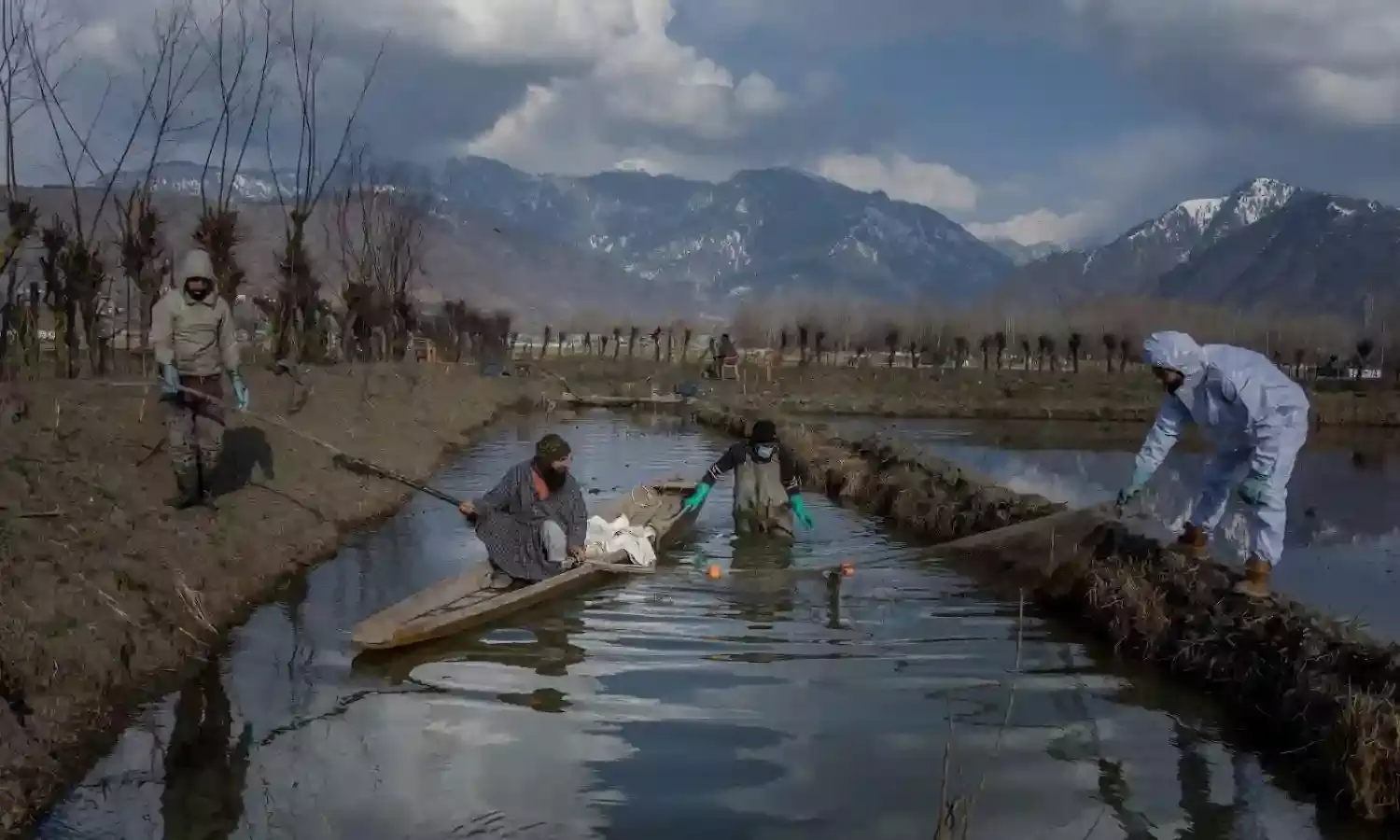
BANDIPORA: As spring approaches, the gusty cold that has frozen everything in Kashmir eases up. Lankreshipora, a small village located on the shores of the Wular lake just two kilometres from the Bandipora main square, is home to a largely fishing community, known for its aab, adab and alim - water, culture and knowledge.
Shabir Ahmed Bhat, 42 is a farm owner and seasonal mechanic who lives in Nasoo Bandipora. He started a fish and nadru (lotus stem) cultivation project in 2011 to revive the tradition of his ancestors with the help of the government. It stretches through 10 kanals of land.
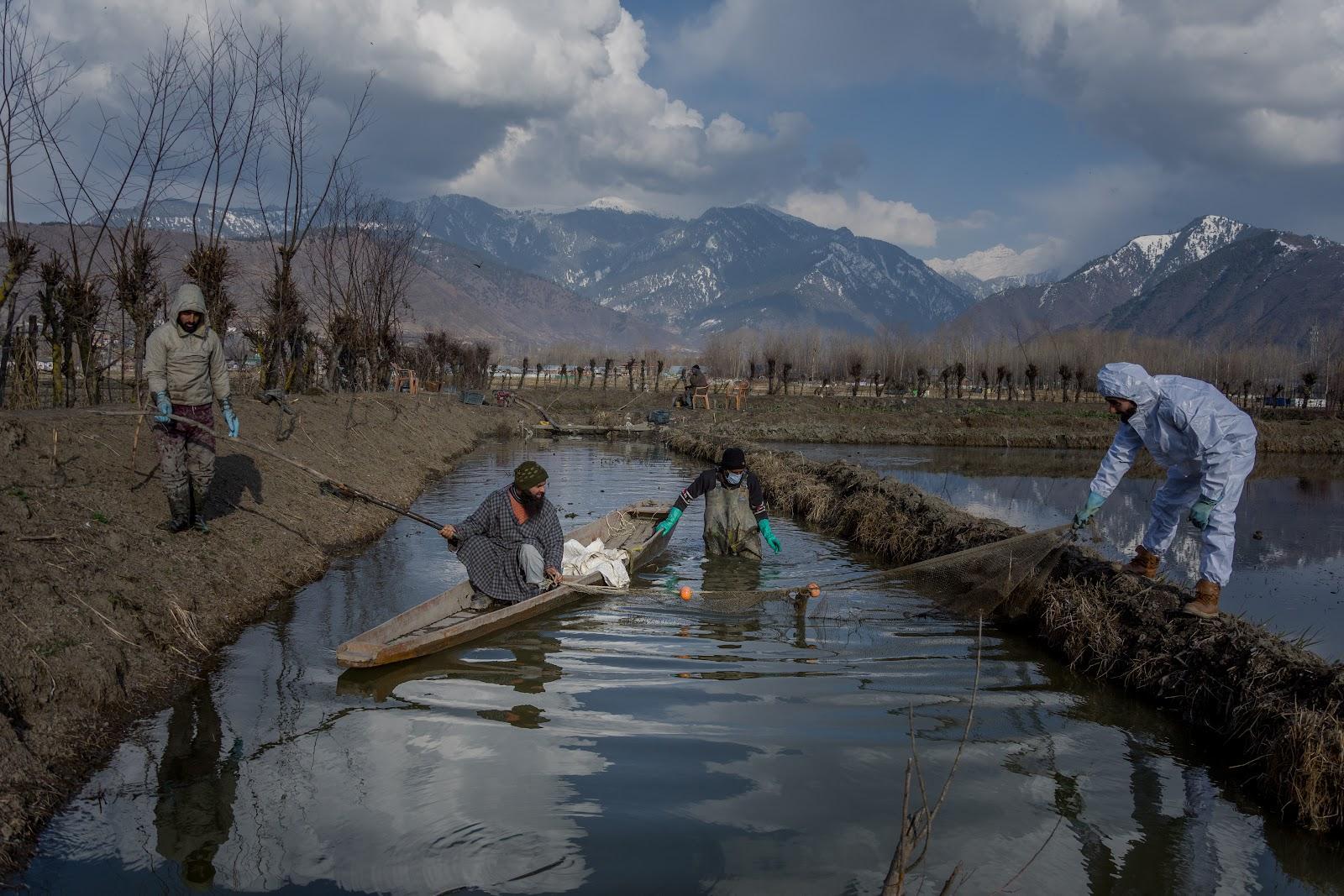
Bhat starts his day by arriving early in the morning near a swampy area with his kangri (firepot) and hookah. He is the sole bread earner in his family and intends to continue this work but the shortage of fish in Wular is bothering him a lot. “In 2014, floods swept Kashmir and destroyed all my farms and equipment, then in 2016 the government compensated for the loss. I urge my new generation to spend their time on such a project because it does not require much investment.”
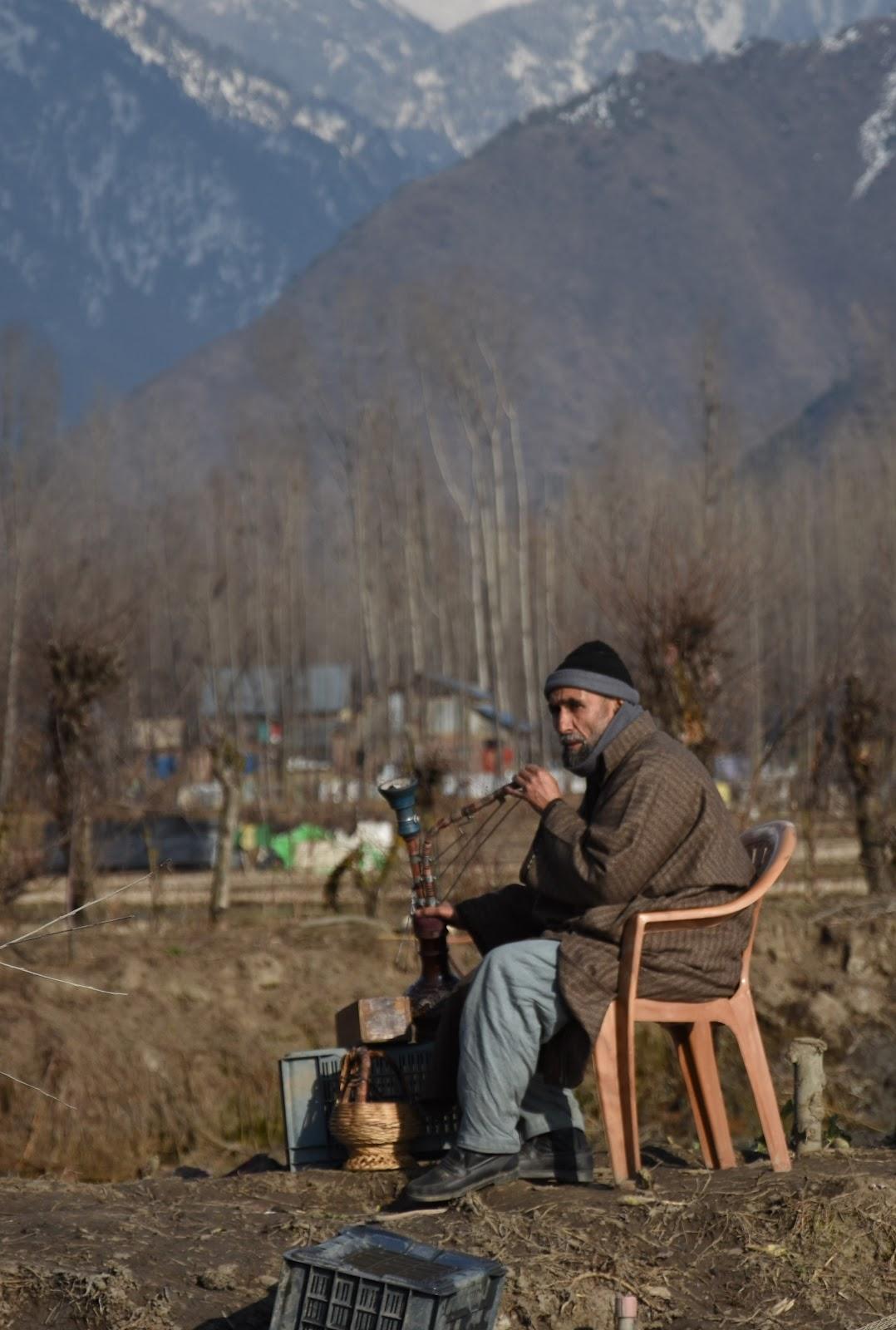
Fish farming has now flourished on the banks of the Wular which is a habitat for migratory waterbirds. The PM Matsya Sampada Yojana is a centrally sponsored scheme for “sustainable development” of the fisheries sector and extends debt to farmers for fishing and cultivation. But rising pollution, shortage of fish, siltation and encroachments pose major challenges to fishers here. They are also a threat to the lake, which has halved in size from 158 sq km in 1911 to 87 sq km in 2007.
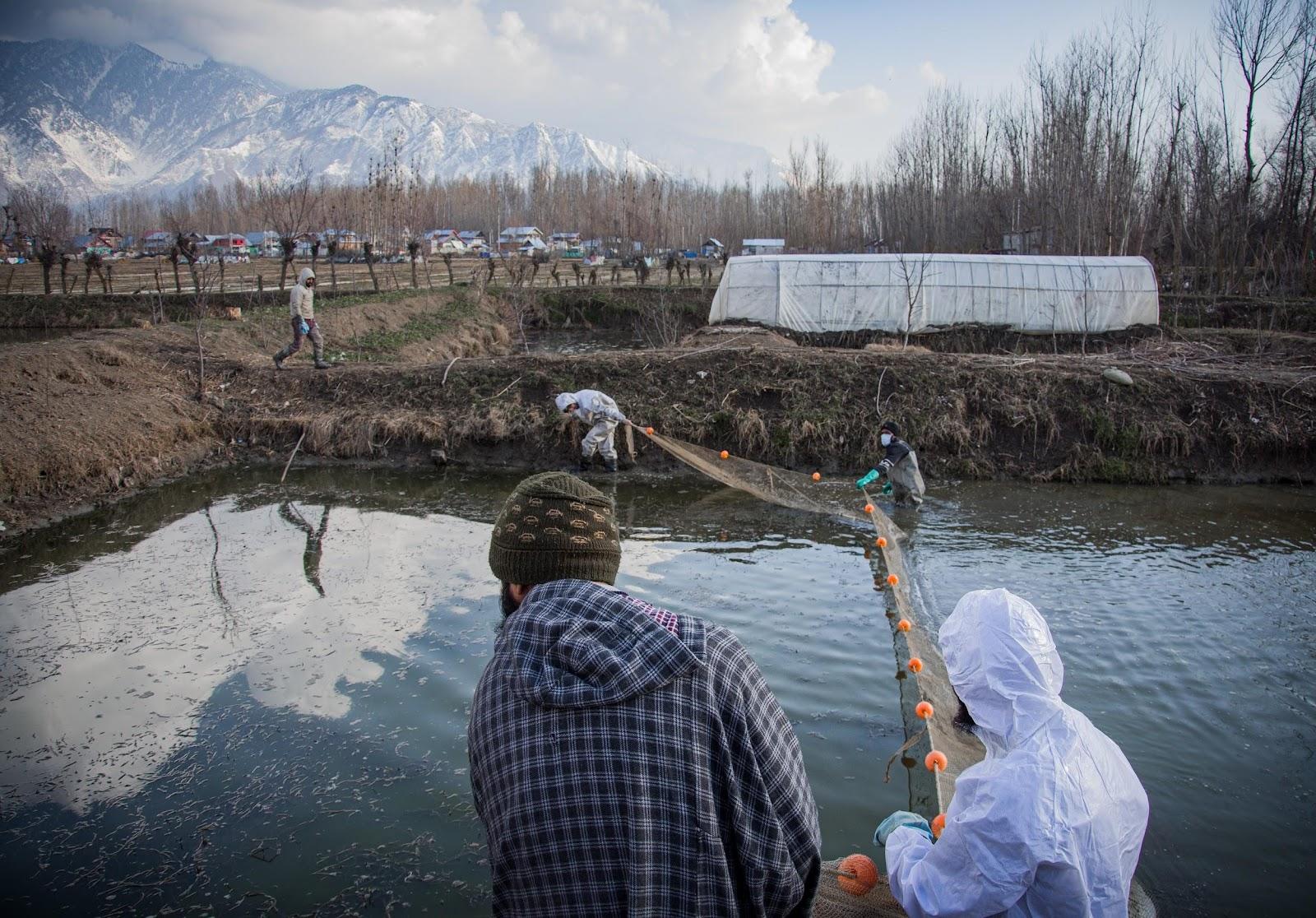
The lotus stem nadur is a boon, a popular delicacy for Kashmiris, cooked along with fish, especially in winters, and is used in many other dishes. It grows in the shallows of water bodies like the Dal, Wular, Mansar lakes and ponds. However, nadur is no longer visible in Wular. The floods of September 2014 wreaked widespread destruction in Kashmir, and now the lotus grows only in artificial fields and ponds.
I have heard from my father that Mangnipora was a famous place for lotus stem. “Our nadru tastes better than others,” says Ghulam Ahmed, a resident of Lankreshipora.
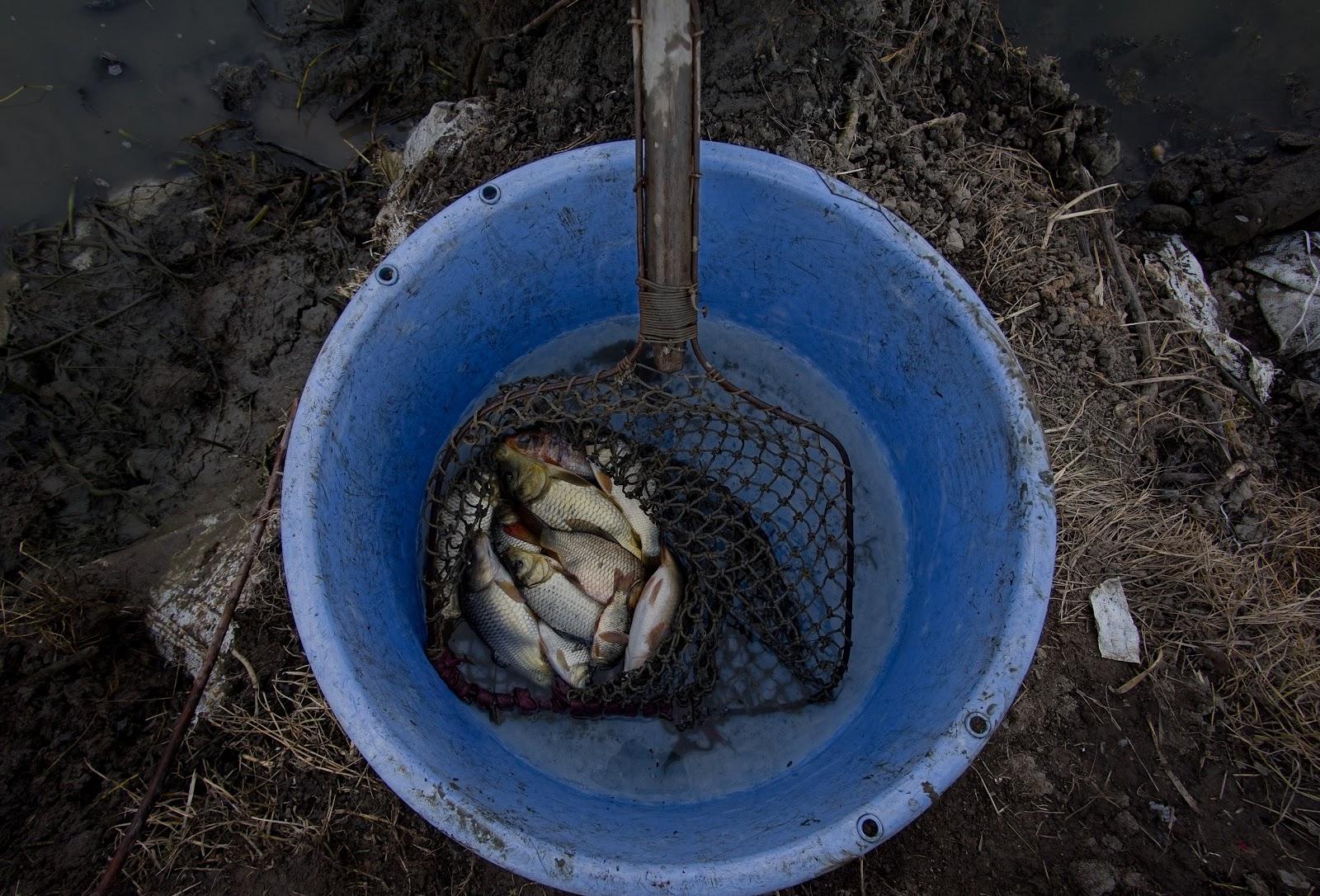
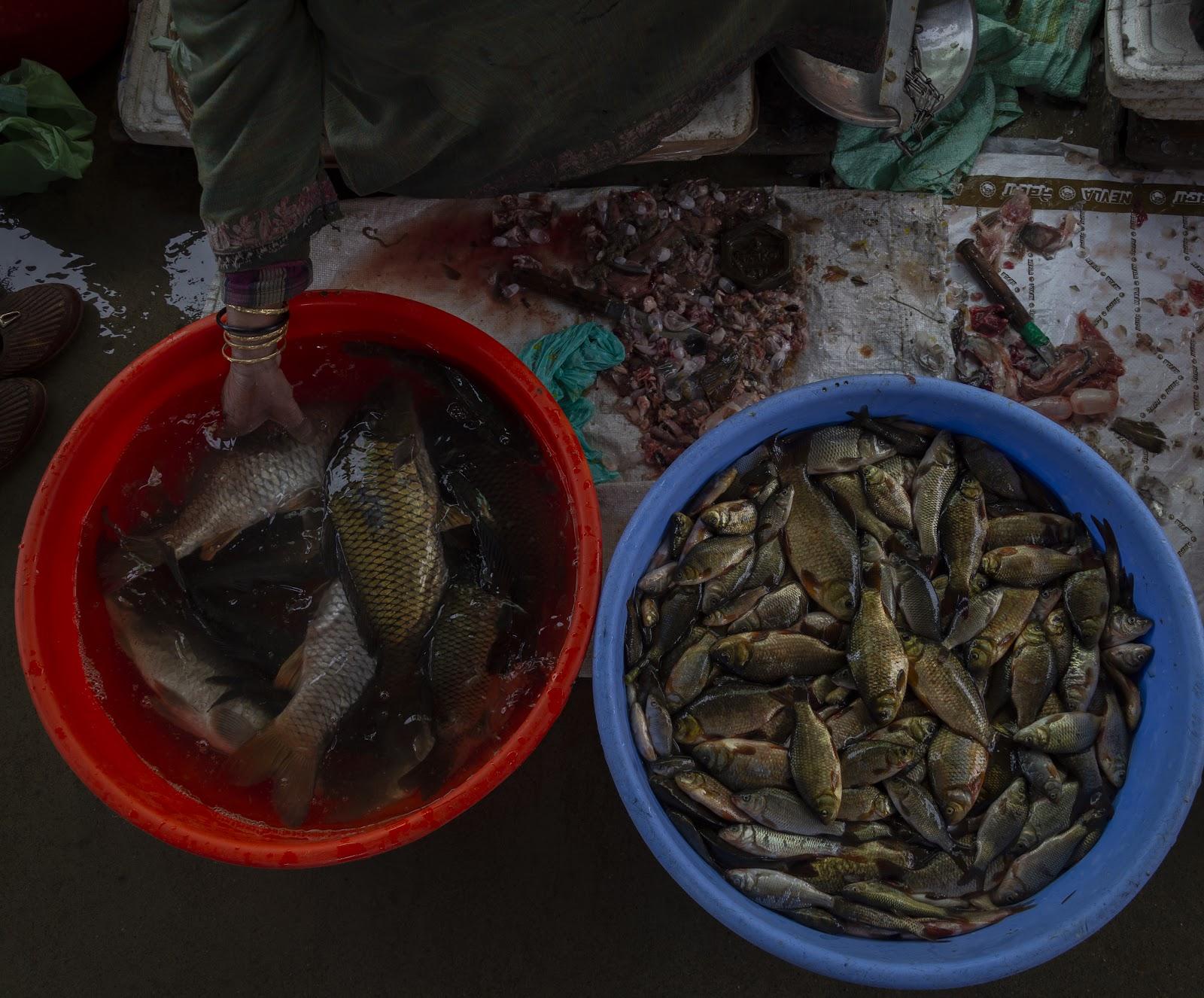
This harvest season, Bhat hopes he might get better nadru production than fish. But the job is very tough. Workers have to dive into the marshy land to get the lotus stem. “Our work started in December. I went to my farm as I am working with a fish, nadru, and vegetable business simultaneously, which takes a lot of hard work around these 2-3 months,” says Bhat.
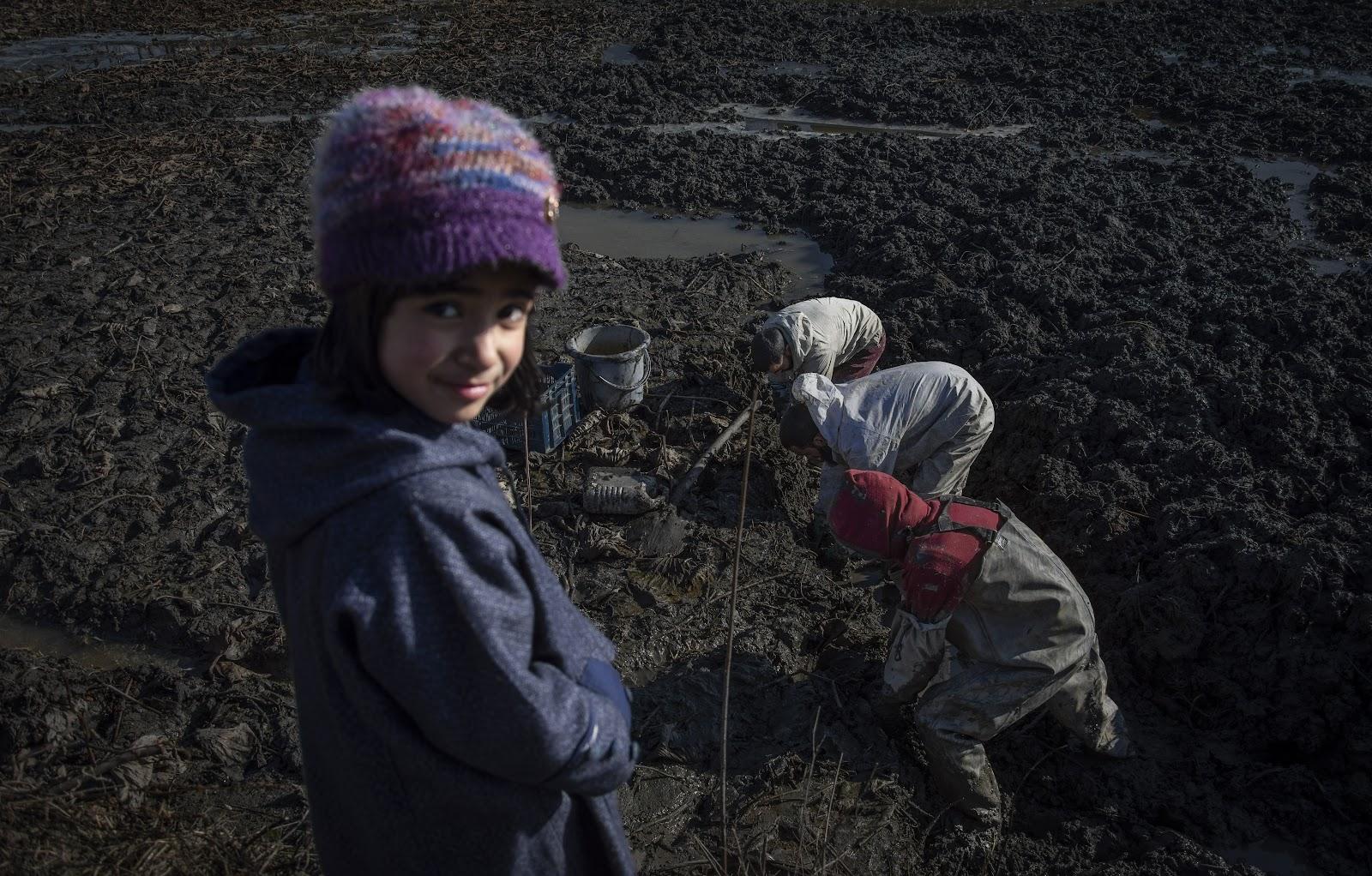
“This is what our family has been doing for ages. While most farmers in Kashmir have little or nothing to do in the bitter cold months, we have at least some source of income. Nadro production has increased this year compared to previous years but our concern is bad weather.”
Cultivating fish and nadur has long been a major occupation for people living near the lake. “When nadru dries we sell it in the market at a handsome price. This job is not bad, some earn their money from marshy land, some by sitting on a chair, this is truly God’s blessing,” says Bhat.
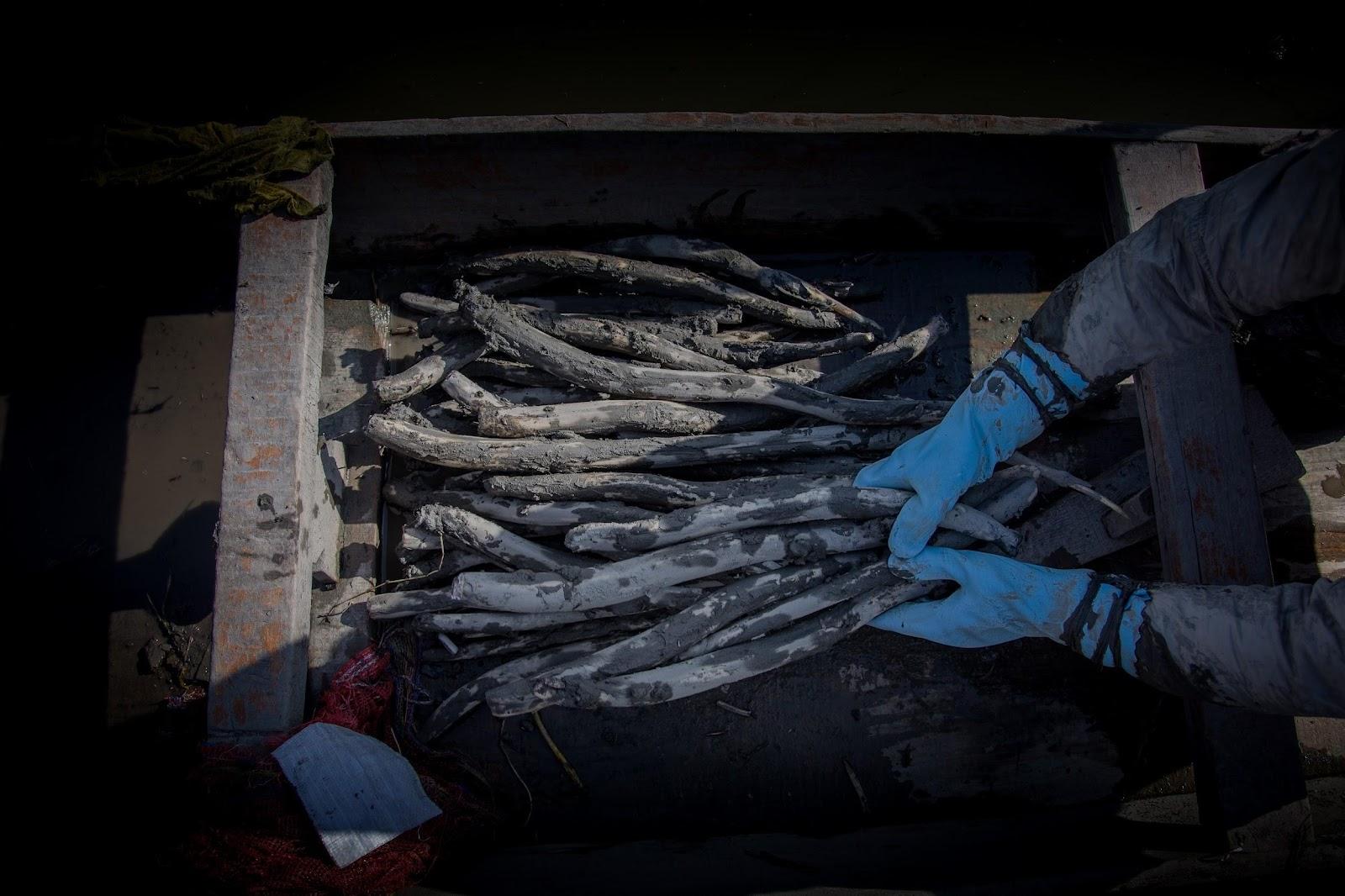
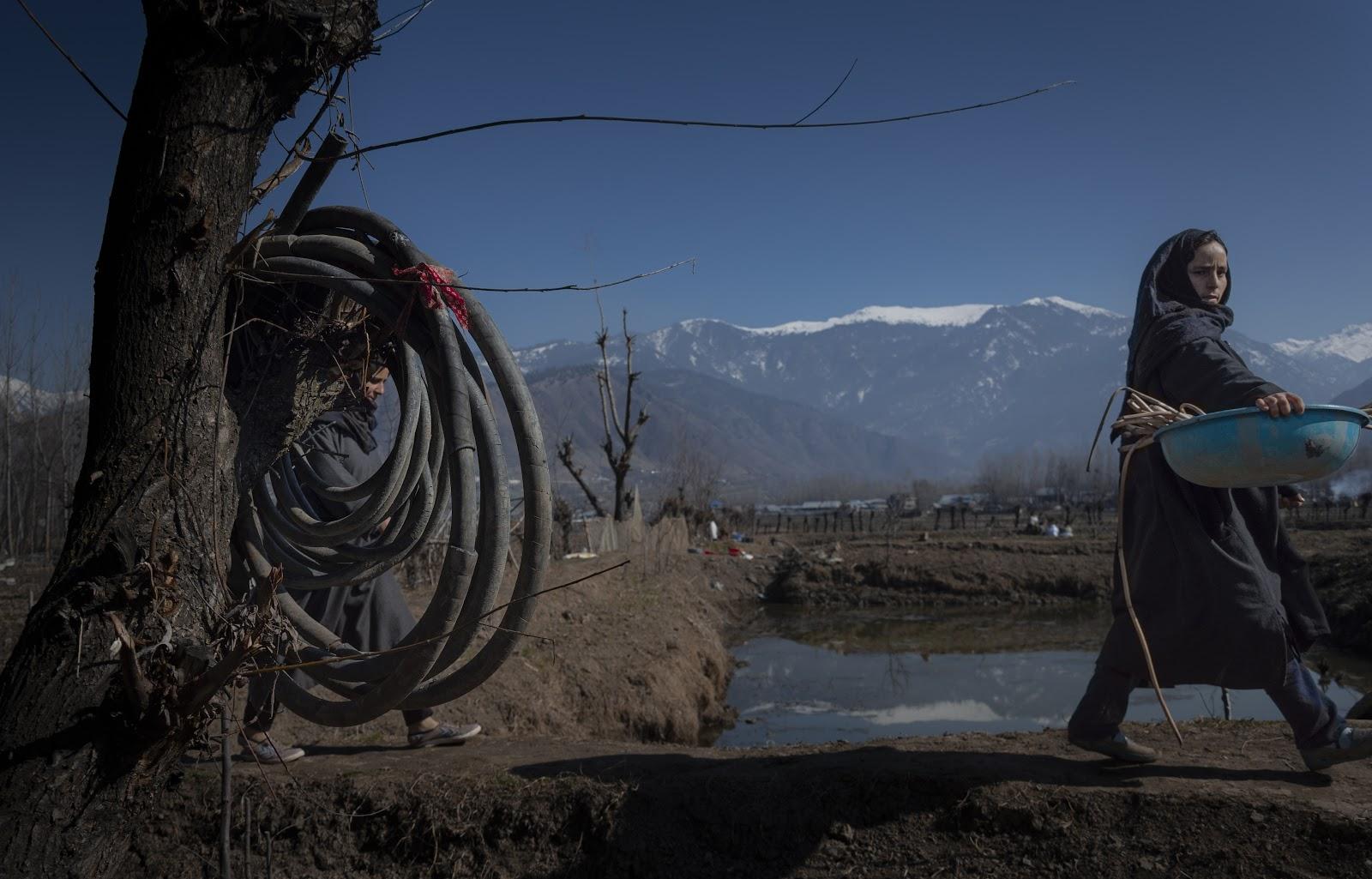
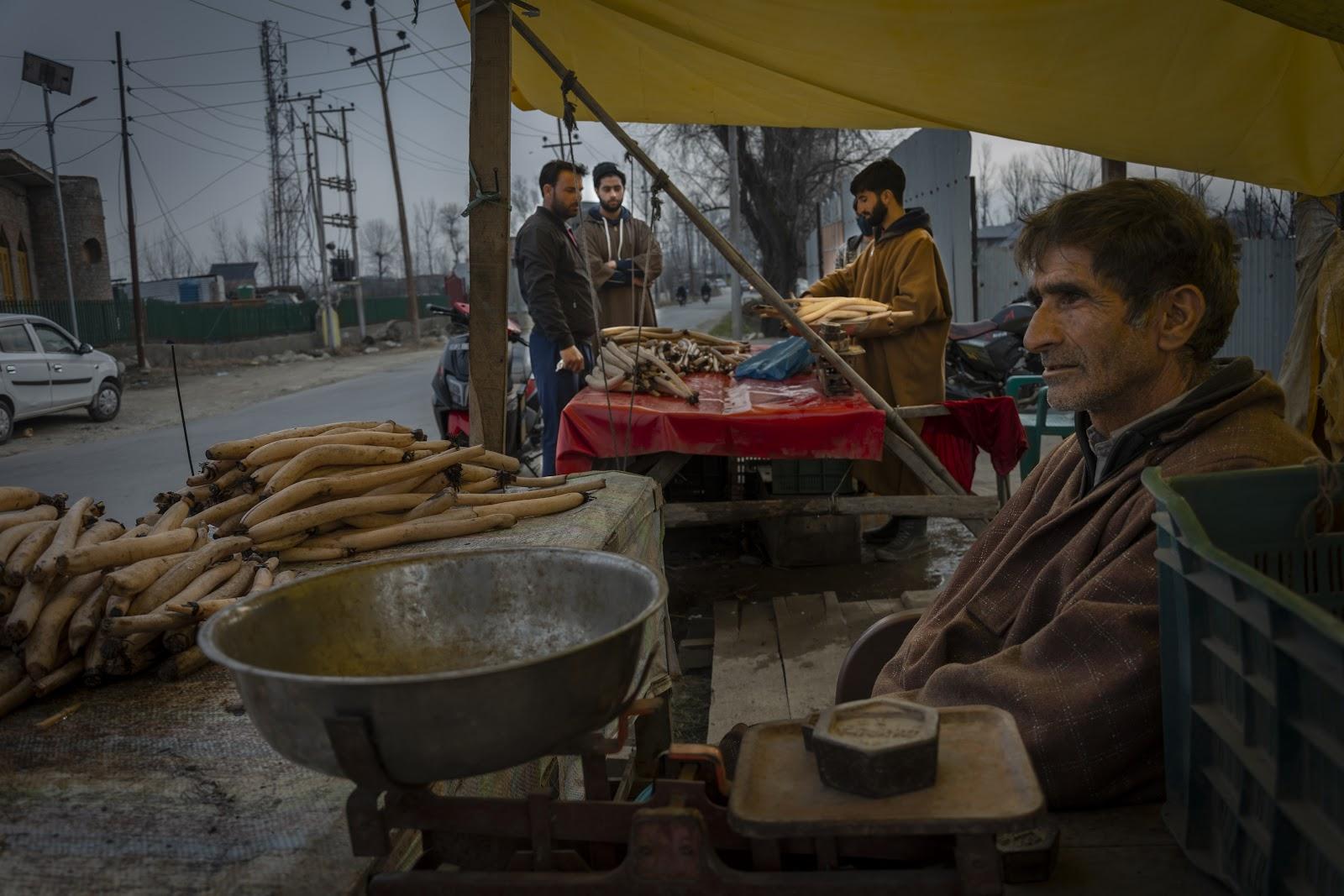
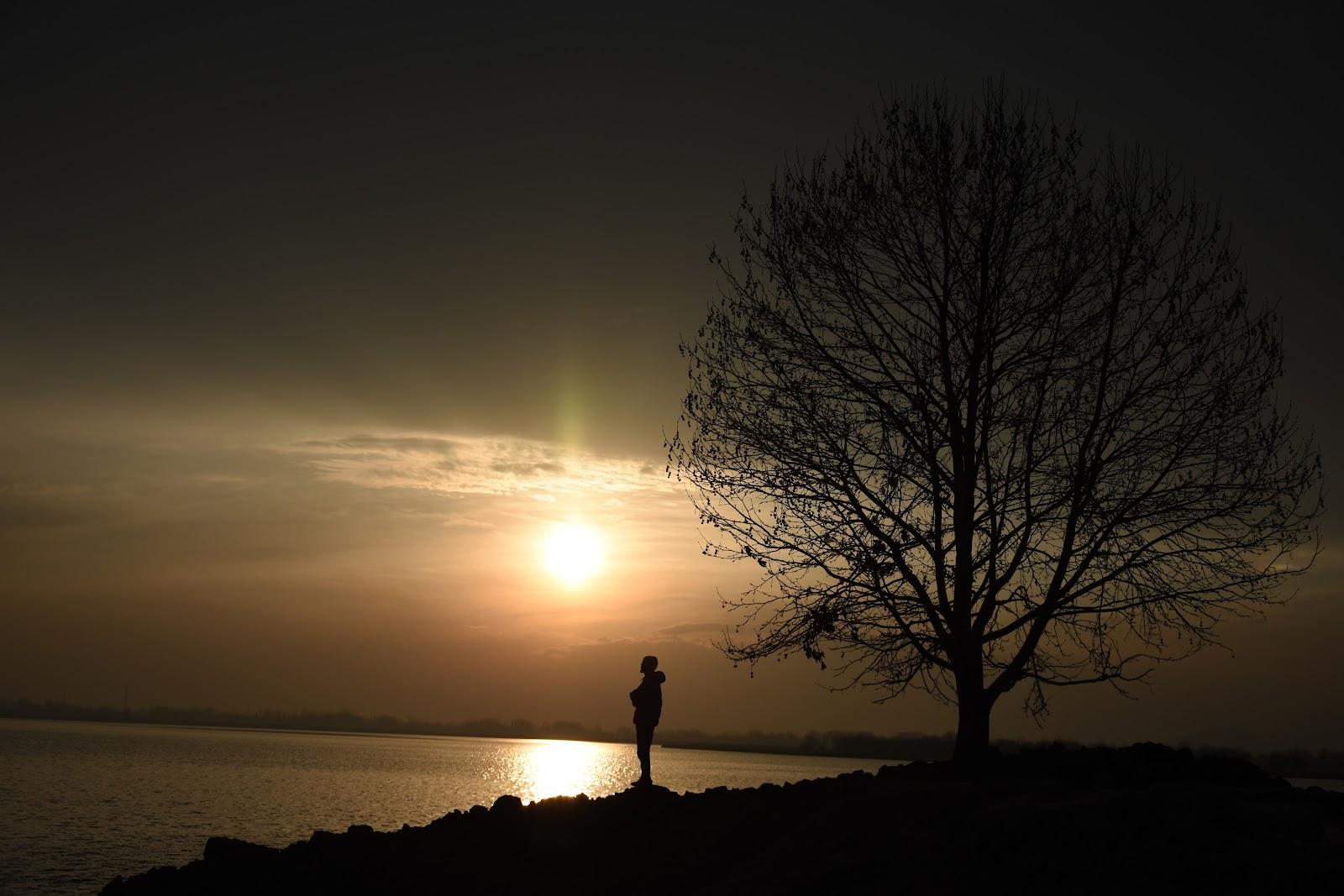
A man walks along the shores of Wular, which attracts onlookers, especially from the hillock of Watlab - a beautiful and quiet place
Photographs by Aakash Gulzar.


